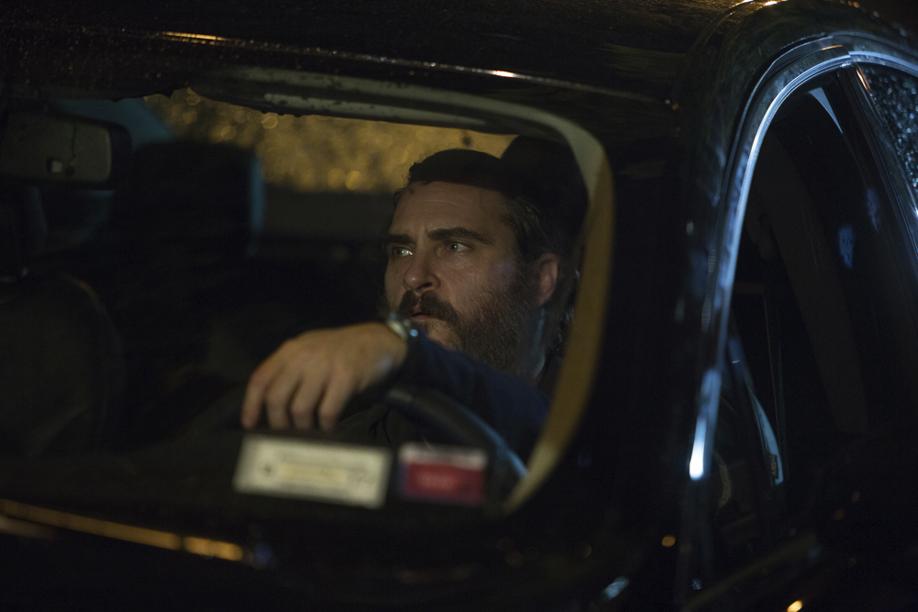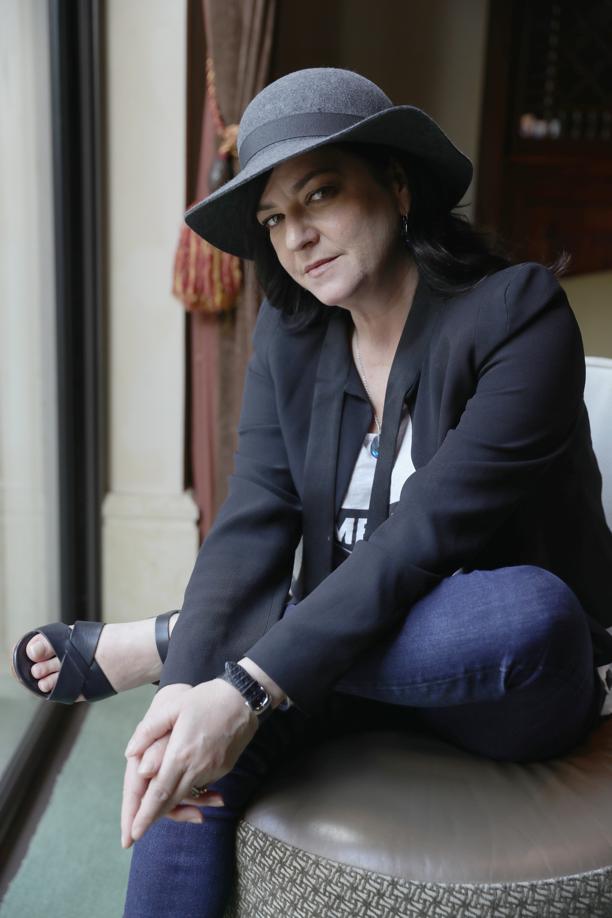

NEW YORK — Since Lynne Ramsay first burst onto the scene at Cannes nearly 20 years ago, with her tantalizing debut feature “Ratcatcher,’’ her subsequent films have arrived sporadically. The Scottish-born filmmaker has directed just three features in the intervening years — “Morvern Callar’’ (2002), “We Need to Talk About Kevin’’ (2011), and her new film, “You Were Never Really Here.’’ It opens in Boston on April 13. Those long hiatuses are partially due to several projects that fell apart and a half-decade-long detour she took trying to bring Alice Sebold’s novel “The Lovely Bones’’ to the big screen.
“I’ve had some bad experiences, but I’ve also been lucky and I just feel so privileged to be able to even make films,’’ says Ramsay, 48, in a recent interview. “All that knowledge of the films I have or haven’t made, they’re still there in my head. So I’ve learned a lot.’’
“You Were Never Really Here,’’ a crime drama about a psychologically scarred hit man starring Joaquin Phoenix, was born out of the ashes of another debacle — her falling-out over the troubled 2015 Natalie Portman western, “Jane Got a Gun,’’ which Ramsay abruptly departed just days before filming was set to begin, following an alleged standoff with a producer.
Ramsay took off for the exotic Greek isle of Santorini to rest, clear her mind, and recharge her batteries. “It was the winter, there’s not much to do there, and the Internet is rubbish,’’ she recalls. “We watched people learning to play chess. It was like being off-the-grid a little, so it was a good time to write.’’
She dove headfirst into adapting the Jonathan Ames novella “You Were Never Really Here,’’ about a troubled US military veteran, Joe, who now works as a mercenary gun-for-hire and devotes his energy to rescuing kidnapped girls from the sex-trafficking trade. When a job spins nightmarishly off the rails, Joe goes to great lengths to save a young woman (Ekaterina Samsonov) from a group of powerful men, while facing the demons of his own troubled past.
“On paper it sounds like a generic crime story,’’ Ramsay says. “But the character is a real guy having a bit of a mid-life crisis and kind of going to seed. He lives at home to take care of his elderly mom. He has suicidal tendencies and he’s a bit of a ghost in his own life.’’
Tucked into a conference room alongside a bearded Phoenix and swathed in a big comfy sweater and a newsboy cap, Ramsay comes across as genial and warm, chatting animatedly in a thick Glaswegian brogue.
The film, which captured the best actor and screenplay prizes at the Cannes Film Festival last May, becomes a character study about a damaged man who’s endured repeated psychological traumas, including witnessing the domestic abuse of his mother and the horrors of war.
Ramsay was drawn to Ames’s book because it “combined a pulpy, B-movie noir narrative’’ with a modern sensibility. Adapting a novella gave her the opportunity to flesh out the central character, including his relationship with his mother, who suffers from dementia. “I really loved the page-turner quality of the book and how propulsive it is,’’ she says. “I wanted to maintain that in the movie, to find that furious pace.’’
As she began writing in Santorini, she had Phoenix in mind the whole time for Joe. In fact, she placed a picture of him on her computer screen-saver and “kind of willed him into the movie,’’ she says. “I thought he would bring a different dimension to it, something unexpected.’’
Though Ramsay and Phoenix had never met, he recalls asking the cinematographer Darius Khondji, whom he worked with on James Gray’s “The Immigrant’’ and Woody Allen’s “Irrational Man,’’ about who was the filmmaker who most excites him. Khondji immediately named Ramsay, which grabbed Phoenix’s attention.
So when he was approached about “You Were Never Really Here,’’ he leapt at the opportunity. Yet there was one snag. He was slated to shoot another film later that year, so he asked Ramsay if she could fast-track production and be ready to go in two months. She agreed, and Phoenix laughs as he recalls thinking, “She’s [expletive] crazy. The fact that the script wasn’t complete and yet she was willing to start pre-production, that seemed really exciting and dangerous to me.’’
In researching the role, Phoenix read about the effect that sustained child abuse has on the brain — “literally the neuro-pathways that are not formed and those that are damaged,’’ he says. “There’s something called toxic stress, which is repeated exposure to trauma. I was fascinated by how it affects the brain and the development of a person.’’
Phoenix notes that the character seems drawn to his line of work “as a means to have some control or to stop the noise in his head. But it becomes progressively worse and worse,’’ he says. “It’s these patterns that are haunting him from when he was young and he couldn’t do anything to prevent the violence against himself or against his mother. His frustration and sadness and guilt and shame is connected to that original trauma.’’
As for her own tumultuous experiences in Hollywood, Ramsay chuckles ruefully at the suggestion that there’s a double standard in the way people praise male auteur directors for being “uncompromising’’ and “sticking to their guns,’’ but visionary female directors like herself wind up being branded “difficult’’ and “fickle.’’ Those were some of the pejoratives lobbed in Ramsay’s direction when she abruptly exited “Jane Got a Gun.’’ The brouhaha led to pointed accusations in the press, and a lawsuit that was eventually settled out of court.
“I think you have a massive responsibility to be true to yourself and to the audience, to not do something phony that you don’t believe in,’’ she says. “So if that’s difficult, I’m sorry, then I am difficult. But I think good work comes out of trying to be true to yourself and be as inventive and creative as possible. You need to know who you are as a director. If you pretend to be someone else, then you’re doing everybody a disservice.’’
Ramsay acknowledges she can become totally obsessed by her work, so it’s important for her to step away a bit and get some perspective. “When I was younger, making films was so all-consuming. It was a life-or-death thing. Films still mean so much to me when I’m making them. So I had to get away from that attitude of living or dying with every film, because otherwise you’ll go insane.
“Yeah, I still do it anyway,’’ she adds, with a laugh,’’ but I’m enjoying it more now than I ever have.’’
Christopher Wallenberg can be reached at chriswallenberg@gmail.com.



